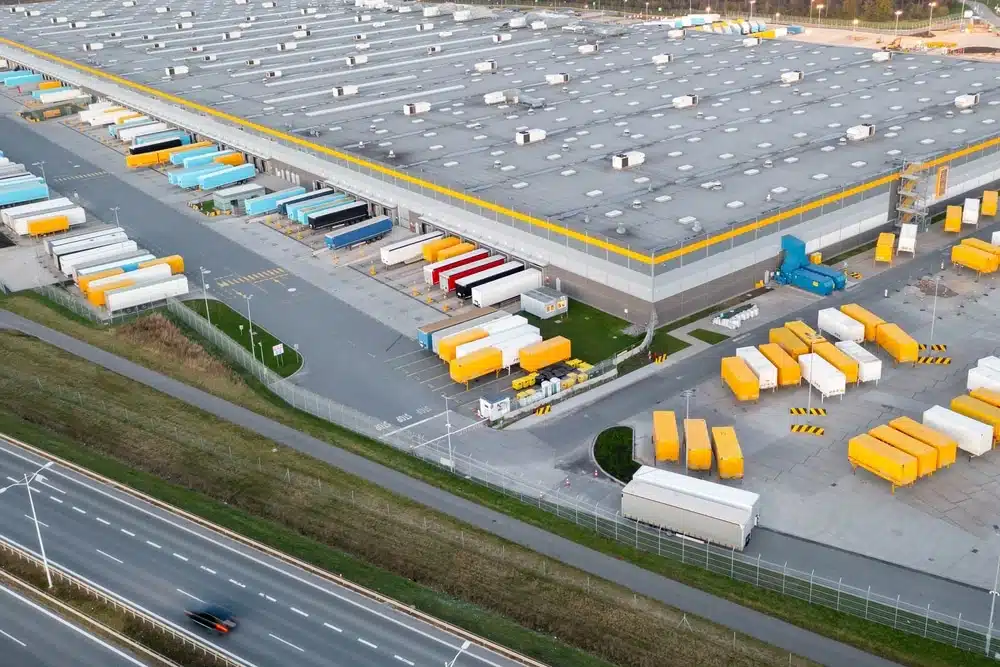
Overcoming Challenges and Enhancing Efficiency in Yard Operations
The logistics industry has experienced substantial growth and increasing complexity in recent years, making efficient yard management crucial for supply chain success. Yard management systems (YMS) have emerged as an essential tool for businesses looking to optimize their yard operations, improve supply chain management, and gain a competitive edge.
This comprehensive article will explore the frustrations and benefits of implementing a YMS, providing valuable insights and guidance for supply chain industry professionals seeking to enhance their yard management practices.
Related: Yard Management 101: Introduction and Best Practices
Yard Management Challenges
System Integration and Compatibility
One of the main challenges when implementing a YMS is ensuring seamless integration with existing systems, such as warehouse management systems (WMS), enterprise resource planning (ERP) software, and other supply chain solutions. Incompatibilities and integration issues can lead to poor planning, operational inefficiencies, and increased costs. It is crucial to carefully assess the compatibility of the chosen YMS with existing systems and processes to avoid potential frustrations.
Employee Training and Adoption
Introducing a new yard management software can be met with resistance from employees, as they may be hesitant to adopt new technology and change their established ways of working. Ensuring the successful adoption of the YMS is vital for realizing its full benefits. Developing a comprehensive change management strategy, including effective employee training programs, can help overcome this challenge and promote a smooth transition.
Cost Concerns
The initial investment in yard management solutions can be significant, causing some organizations to be hesitant about adopting the technology. However, it is essential to evaluate the long-term benefits of YMS implementation, such as improved efficiency, cost savings, and streamlined operations, to understand the potential return on investment (ROI).
Gate and Yard Congestion
Managing gate and yard congestion is a common frustration in yard operations. Inefficient gate management, poor scheduling, and manual processes can lead to delays, increased labor costs, and lower productivity. Implementing a YMS can help address these issues, but it is crucial to ensure that the software solution selected effectively tackles congestion and optimizes yard processes.
Benefits of Yard Management System Integration – Reaping the Rewards
Real-Time Visibility and Operational Control
One of the most significant benefits of a YMS is real-time visibility into yard activities and operational status. This increased transparency allows yard managers to make informed decisions, monitor operations more effectively, and respond to issues quickly. Ultimately, this results in improved efficiency, better utilization of resources, and cost reduction.
Streamlined Processes and Improved Efficiency
A YMS automates many manual operations, such as appointment scheduling, yard checks, and gate management. This automation reduces the potential for human error, enables carriers and dock teams to communicate more efficiently, and allows employees to focus on higher-value tasks. The result is a more streamlined and efficient yard operation.
Enhanced Inventory Management
A YMS provides real-time data on trailer status, location, and contents, which significantly improves inventory management. By integrating with WMS and other supply chain solutions, YMS software enables organizations to optimize warehouse capacity, reduce stock discrepancies, and minimize dwell time for empty trailers.
Improved Dock Scheduling and Door Utilization
Effective dock scheduling is crucial for efficient yard operations. YMS solutions offer appointment management features that automate the scheduling process, ensuring that dock doors are utilized efficiently and reducing the likelihood of delays or conflicts. This improved dock management leads to cost savings and increased productivity.
Additional Benefits and Considerations
Enhanced Security and Safety
YMS solutions improve security and safety within the yard by providing real-time visibility and control over yard activities. For instance, radio frequency identification (RFID) technology can track the movement of vehicles, trailers, and assets, helping to prevent theft and unauthorized access. Enhanced security measures contribute to a safer working environment and reduce the risk of accidents.
Environmental Sustainability
By streamlining yard operations, reducing congestion, and minimizing idle time for trucks and equipment, a YMS can contribute to a more sustainable supply chain. Improved efficiency leads to reduced fuel consumption and greenhouse gas emissions, helping organizations achieve their sustainability goals.
Scalability and Adaptability
As supply chains evolve and grow, it is crucial to have a yard management solution that can adapt and scale to meet changing needs. Selecting a YMS that offers flexible features and can be customized to suit specific business requirements ensures long-term value and continued efficiency improvements.

Making the Right Choice – Selecting the Ideal YMS
Assessing Your Yard Management Needs
Before selecting a YMS, it is essential to conduct a thorough assessment of your yard management needs, including current challenges, operational goals, and desired outcomes. This evaluation will help you identify the features and functionality that are most critical for your organization.
Comparing YMS Solutions
Once you have a clear understanding of your yard management needs, compare different YMS solutions on the market. Consider factors such as ease of integration, user-friendliness, scalability, and support services when making your decision. Reading case studies and seeking recommendations from industry peers can also be helpful.
Investing in Long-Term Success
Remember that implementing a YMS is an investment in the long-term success of your yard operations and overall supply chain. Be prepared to invest time and resources into employee training, system integration, and ongoing support to ensure that you reap the full benefits of your chosen solution.
Yard Management Software: Integrating Logimax WMS with YMS Module for Enhanced Efficiency
Implementing a yard management system that works in harmony with your warehouse management system is crucial for achieving maximum efficiency. Logimax WMS offers seamless integration with our Yard Management module, eliminating the need for custom integration work often required by third-party systems. This powerful combination offers a wide range of features and benefits, including:
- Real-time asset tracking: Monitor the movement of assets within your yard, ensuring accurate inventory counts and reducing the risk of misplaced items.
- Inbound and outbound shipment tracking: Keep track of all incoming and outgoing shipments, improving the accuracy of your inventory management and enhancing overall supply chain performance.
- Appointment scheduling: Coordinate appointments for inbound and outbound shipments, reducing congestion and optimizing yard operations.
- Gate control: Efficiently manage the flow of vehicles and personnel into and out of your yard, enhancing security and minimizing wait times.
- Increased customer satisfaction: Streamlined yard operations lead to improved order fulfillment and greater customer satisfaction, giving your business a competitive edge.
By choosing Logimax WMS with the YMS module, you can enjoy a fully integrated yard management solution that saves you time and money. This powerful pairing ensures that your yard management processes are optimized, allowing you to focus on growing your business and delivering exceptional service to your customers.
Conclusion: Embracing the Future of Yard Management
The frustrations and challenges associated with yard management are undeniable, but the benefits of implementing a YMS far outweigh the difficulties. By carefully selecting the right YMS solution and investing in its successful integration, organizations can streamline operations, reduce costs, improve efficiency, and enhance overall supply chain performance. As the logistics industry continues to evolve, embracing yard management systems is a crucial step toward future success and competitiveness in the supply chain landscape.
FAQs
How does a YMS improve overall supply chain efficiency?
A YMS enhances supply chain efficiency by streamlining yard operations, reducing gate and yard congestion, and improving communication between yard managers, drivers, and dock teams. By automating manual processes and integrating with warehouse management systems (WMS) and transportation management systems (TMS), a YMS facilitates better decision-making and optimizes resource allocation.
What are the main differences between a warehouse management system (WMS), a yard management system (YMS), and a transportation management system (TMS)?
A WMS focuses on optimizing the movement, storage, and tracking of goods within a warehouse, while a YMS manages the flow of vehicles and trailers within the yard. A TMS, on the other hand, deals with the planning, execution, and monitoring of transportation and logistics operations, including route optimization, carrier selection, and freight auditing. Each system plays a critical role in different stages of the supply chain process.
How can a YMS help reduce labor costs and improve productivity in the yard?
By automating manual processes, such as yard checks and appointment scheduling, a YMS reduces the time spent on administrative tasks, allowing yard personnel to focus on higher-value tasks. Additionally, a YMS can minimize the idle time for yard trucks and drivers, leading to more efficient use of resources and reduced labor costs.
What types of businesses can benefit from implementing a yard management system?
Businesses with large, complex yard operations, such as a distribution center, manufacturing facilities, and logistics companies, can greatly benefit from implementing a YMS. Industries with high volumes of inbound and outbound shipments, tight delivery windows, or strict regulatory requirements can also see significant improvements in efficiency and compliance by utilizing a YMS.
How do yard management systems provide real-time visibility into yard operations?
A YMS uses technologies like radio frequency identification (RFID), GPS tracking, and barcode scanning to collect and update data on the location, status, and movements of vehicles, trailers, and goods within the yard. This real-time information is presented through a user-friendly interface, enabling yard managers and other stakeholders to make informed decisions and quickly respond to changes in operational conditions.
Can a yard management system integrate with other supply chain management systems, such as a WMS, TMS, or dock scheduling software?
Yes, a YMS can typically integrate with other supply chain management systems, including WMS, TMS, and other systems, to provide a seamless flow of information and coordination between different stages of the supply chain process. This integration allows businesses to optimize their entire supply chain operation, from warehouse management and yard operations to transportation and logistics planning.
What is the impact of a YMS on environmental sustainability?
By streamlining yard operations and reducing congestion, a YMS can contribute to lower fuel consumption and reduced emissions from yard trucks and other vehicles operating within the yard. Additionally, a YMS can help companies identify areas of inefficiency and waste, enabling them to implement more sustainable practices and reduce their overall environmental footprint.
How does a YMS help improve customer satisfaction and reduce detention fees?
A YMS can improve customer satisfaction by providing better visibility into shipment status, more accurate delivery times, and faster response to customer inquiries. Additionally, by optimizing yard operations and reducing wait times at the gate, a YMS can minimize detention fees incurred by carriers, which can lead to better relationships with carriers and customers alike.
How does a yard management system help reduce the need for manual yard checks?
A yard management system automates many aspects of yard operations, providing real-time visibility and accurate data on the location and status of trailers, containers, and other assets. By utilizing technology such as RFID, GPS, and barcode scanners, a YMS eliminates the need for time-consuming manual yard checks, reducing costs and human errors, and improving overall operational efficiency.



